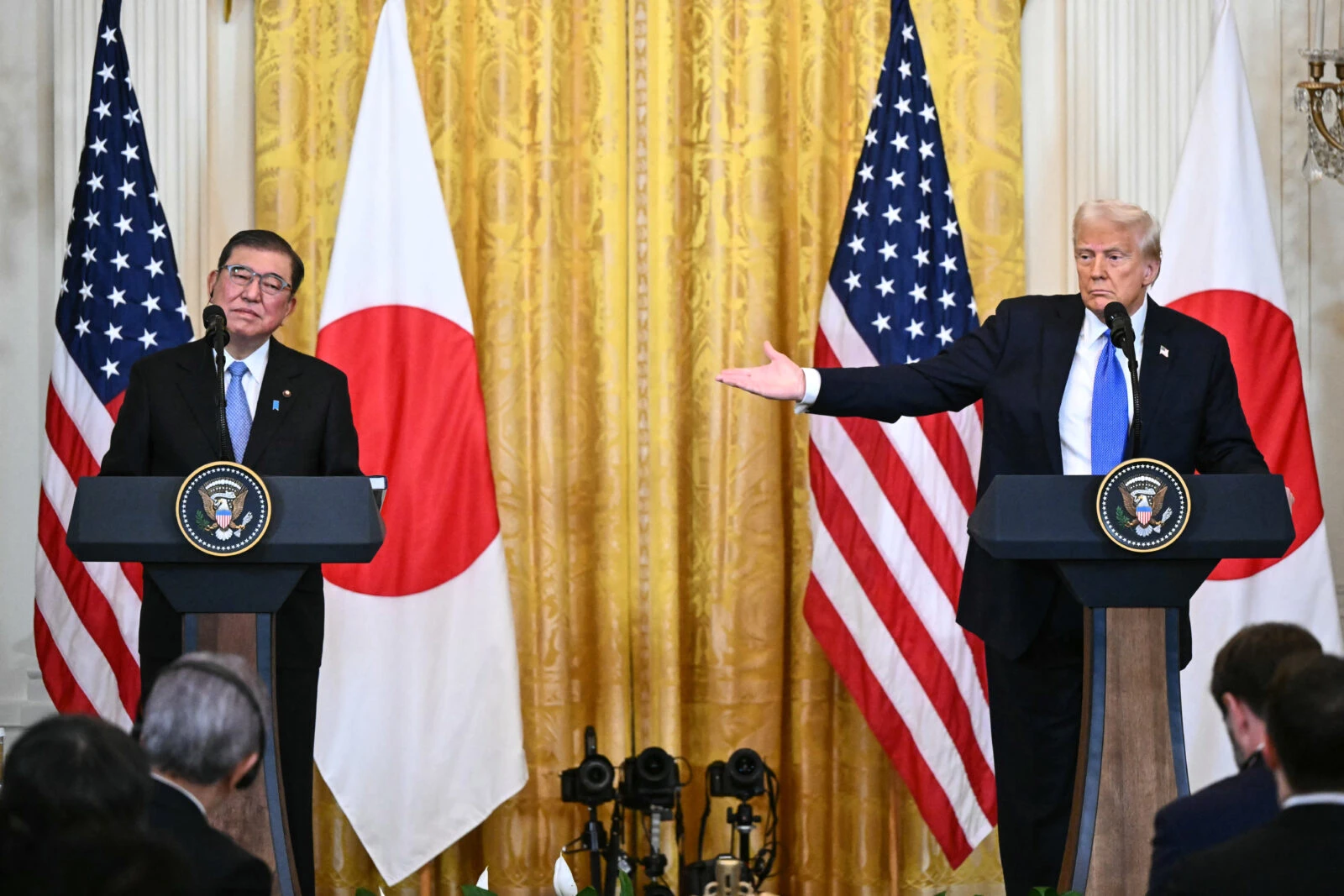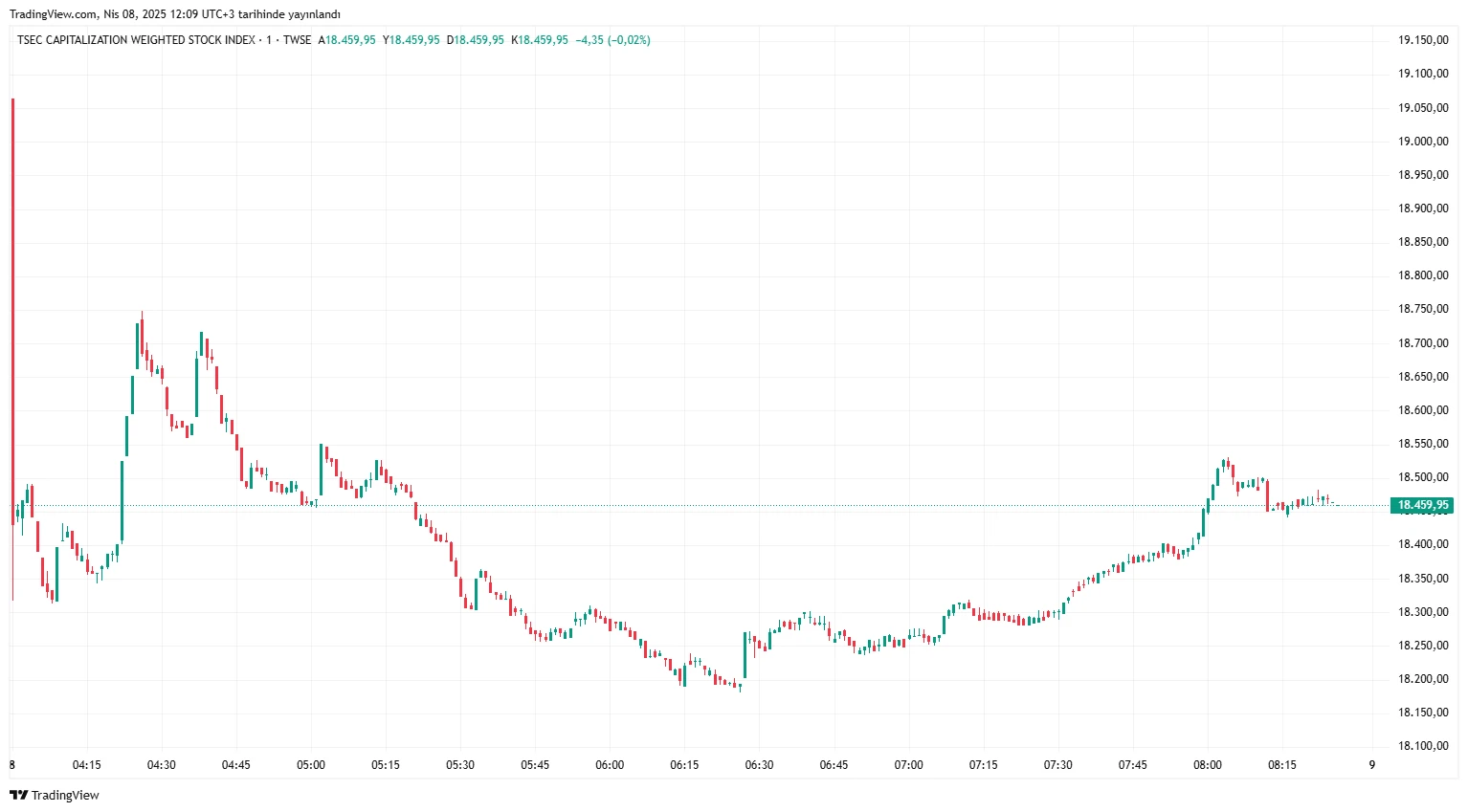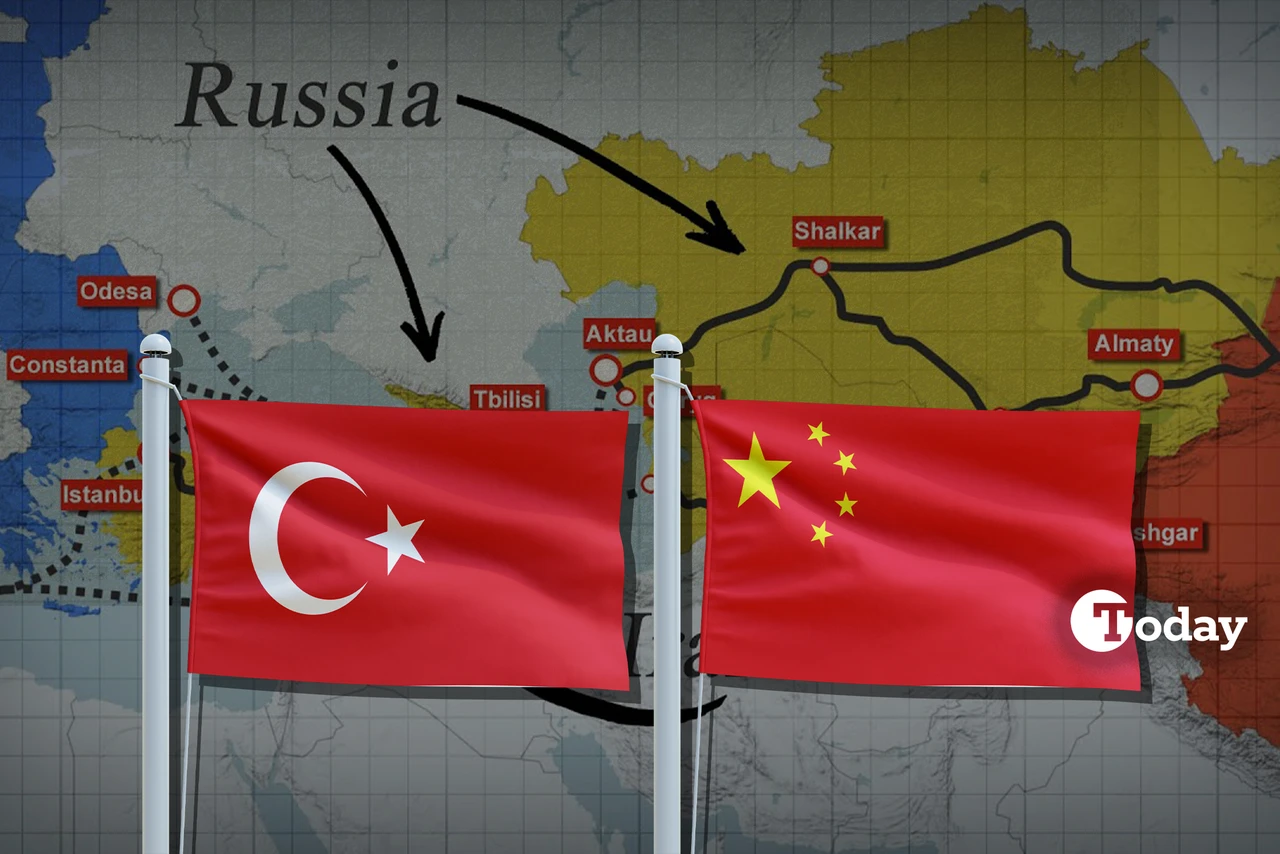Global markets stage fragile rebound after devastating ‘Black Monday’ losses
 This photograph shows the logo of Euronext, a pan European stock exchange, above financial informations of the index CAC40 (bottom L), Frances index that tracks the 40 largest French stocks, at their office building at La Defense financial district in Paris on April 7, 2025. (AFP Photo)
This photograph shows the logo of Euronext, a pan European stock exchange, above financial informations of the index CAC40 (bottom L), Frances index that tracks the 40 largest French stocks, at their office building at La Defense financial district in Paris on April 7, 2025. (AFP Photo)
Global markets struggled to regain footing on Tuesday following a dramatic, tariff-induced sell-off a day earlier, as escalating tensions between the United States and China continued to unsettle investors.
Despite some signs of rebound, investor sentiment remained fragile after U.S. President Donald Trump threatened further tariffs against China, and Beijing vowed to “fight to the end” in response. The deepening trade conflict has fueled fears of a prolonged economic downturn and disrupted global markets.
On Monday, Trump warned of a further 50% tariff hike unless China rolls back its retaliatory 34% tariffs by April 8. The aggressive stance added to concerns that the world’s two largest economies are heading into a prolonged and damaging trade war.
In a statement issued Tuesday, China’s Ministry of Commerce reiterated its opposition to U.S. tariff increases and signaled that it would respond firmly to any further escalation.
Asian markets see mixed recovery, European markets rebound
Asian markets saw a mixed response, with some indices rebounding sharply while others continued their downward spiral.
Japan’s Nikkei 225 jumped more than 6%, recovering much of Monday’s steep losses. The rally came after Japanese Prime Minister Shigeru Ishiba had a call with President Trump, raising hopes of easing tensions.

Shares of Nippon Steel surged over 6%, buoyed by news that Trump had ordered a fresh review of its proposed acquisition of U.S. Steel, a deal previously blocked by President Joe Biden.
Hong Kong’s Hang Seng Index gained more than 1% but remained far below Monday’s staggering 13% loss—its biggest single-day drop since the 1997 Asian Financial Crisis. Shanghai’s SSE Composite Index rose 1.6%, supported by the Chinese central bank’s pledge to back major state-owned fund Central Huijin Investment in an effort to maintain stability in capital markets.
Elsewhere in the region, Australia’s ASX 200 and India’s Sensex added more than 2%, while the Philippine Stock Exchange Index (PSEi) climbed 3%. South Korea’s KOSPI and New Zealand’s NZX 50 also posted modest gains.
However, not all markets found relief. Taiwan’s TAIEX dropped another 4%, compounding Monday’s record 9.7% plunge. Singapore’s Straits Times Index declined more than 1%.

Indonesia’s Jakarta Composite Index plunged over 9%, prompting a temporary trading halt shortly after opening, as investors returned from a prolonged holiday to a grim market landscape. Vietnam’s VN-Index, already reeling from the imposition of 46% U.S. tariffs, shed more than 6%, while Thailand’s SET Index fell 5%. Thai regulators moved to ban short-selling in a bid to curb further losses.
European equities also attempted a rebound at Tuesday’s open, with London’s FTSE 100, Paris’s CAC 40, and Frankfurt’s DAX each gaining more than 1%, while Milan’s FTSE MIB rose a more modest 0.8% after plunging over 4% on Monday.
In the U.S, Wall Street fared comparatively better on Monday. The Dow Jones Industrial Average and S&P 500 closed lower but recouped much of their earlier losses. The tech-heavy Nasdaq Composite even managed to post a slight gain, offering a glimmer of stability amid market volatility.



